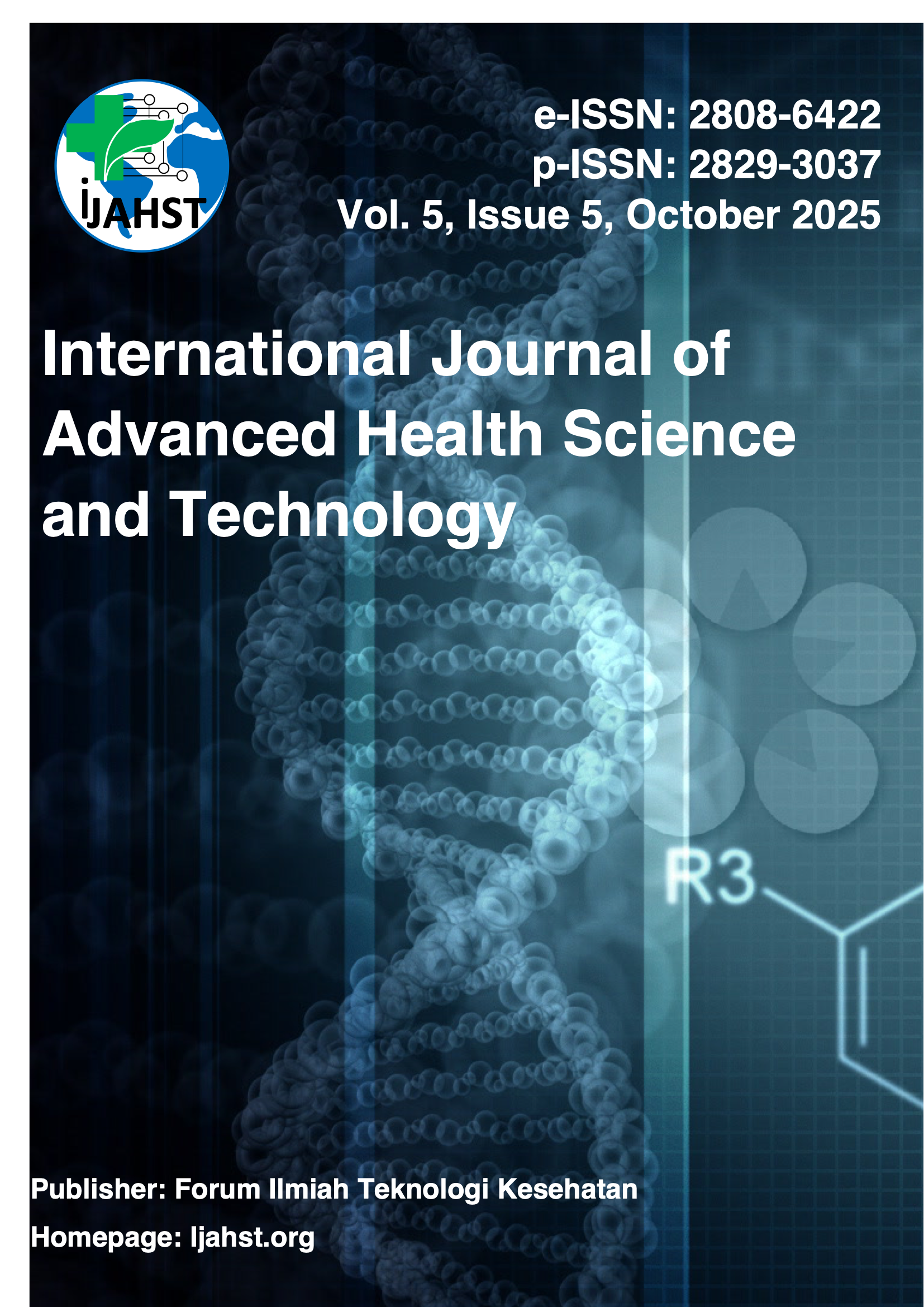Dental and Oral Health with Periodontitis: Knowledge in Elderly T2DM in Surabaya - Indonesia
Abstract
Type 2 Diabetes Mellitus (T2DM) is a chronic condition that affects various aspects of health, including dental and oral health. Diabetes and periodontitis are the most prevalent human diseases. Diabetes worsens the periodontal condition, but periodontitis also hampers glycemic control in diabetic patients. The study aimed to analyze the relationship between knowledge of oral health maintenance and the incidence of periodontitis among elderly patients with Type 2 Diabetes Mellitus (T2DM) at the Tanah Kalikedinding Health Center, Surabaya. The cross-sectional study involved 46 elderly participants diagnosed with T2DM. Data were collected using a dental and oral health maintenance knowledge questionnaire and the Community Periodontal Index of Treatment Needs (CPITN). The majority of respondents were women (73.9%) aged 60-70 years (91.3%), with most having only a junior high school education (47.8%). Knowledge levels were generally low, with 54.35% of respondents classified as having poor knowledge. Most respondents (80.4%) had severe periodontitis, as indicated by CPITN scores. The Pearson correlation test revealed no significant relationship between knowledge levels and CPITN scores (r = -0.134, p = 0.374), suggesting that knowledge about dental and oral health maintenance does not significantly influence the incidence of periodontitis in this sample. The findings highlight the need for comprehensive interventions to improve dental and oral health among elderly T2DM patients, focusing not only on increasing knowledge but also improving access to dental care and promoting healthy lifestyle practices. These efforts are essential to reducing the prevalence of severe periodontitis in this vulnerable population.
Full text article
Authors
Copyright (c) 2025 Dyah Kartika

This work is licensed under a Creative Commons Attribution-ShareAlike 4.0 International License.
Authors who publish with this journal agree to the following terms:
- Authors retain copyright and grant the journal right of first publication with the work simultaneously licensed under a Creative Commons Attribution-ShareAlikel 4.0 International (CC BY-SA 4.0) that allows others to share the work with an acknowledgement of the work's authorship and initial publication in this journal.
- Authors are able to enter into separate, additional contractual arrangements for the non-exclusive distribution of the journal's published version of the work (e.g., post it to an institutional repository or publish it in a book), with an acknowledgement of its initial publication in this journal.
- Authors are permitted and encouraged to post their work online (e.g., in institutional repositories or on their website) prior to and during the submission process, as it can lead to productive exchanges, as well as earlier and greater citation of published work (See The Effect of Open Access).

